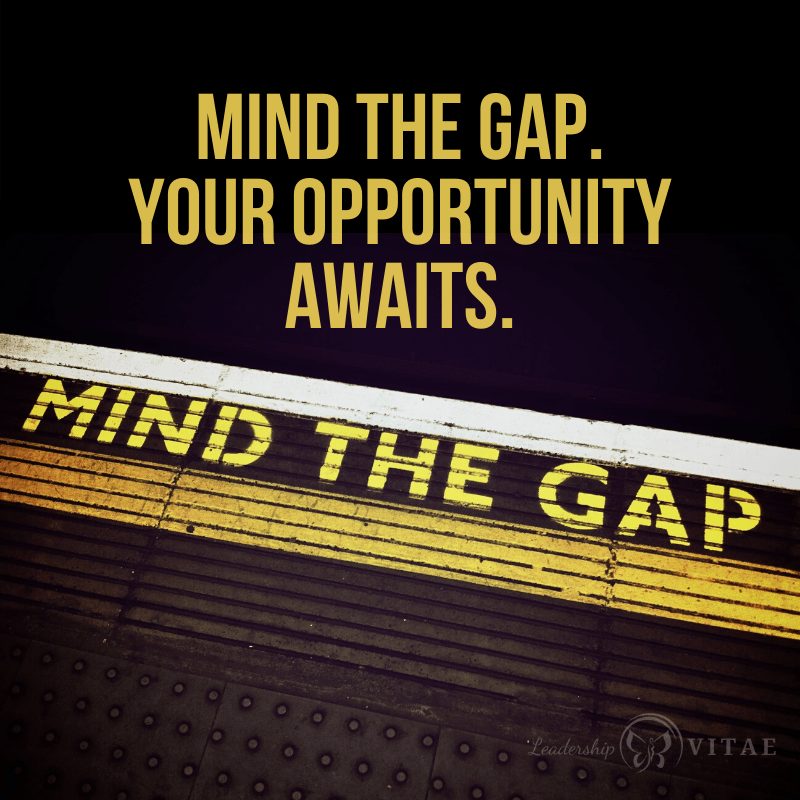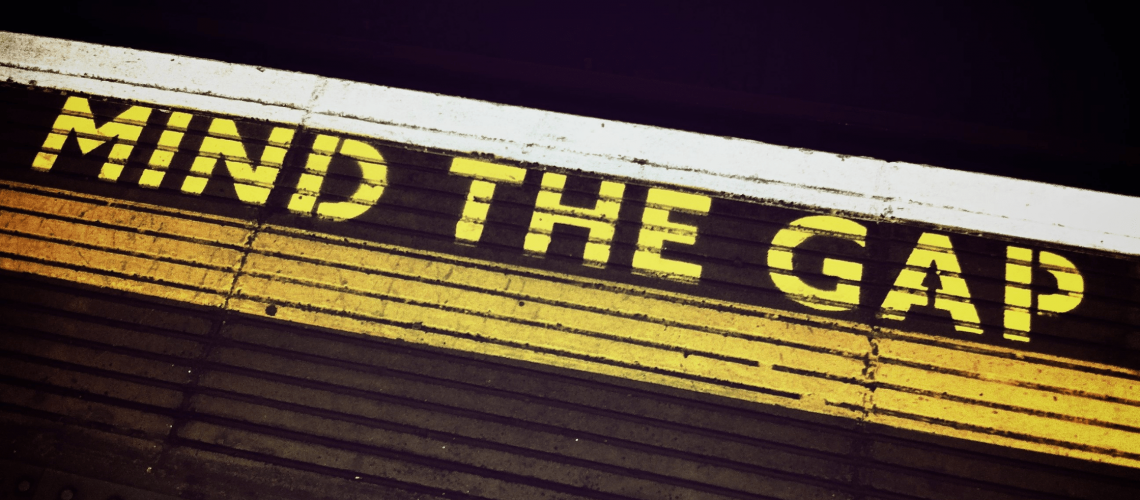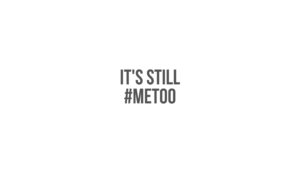
Having been on public transportation in cities around the world, they each have things about them that are memorable. London’s “Mind the Gap” has stayed with me since my first visit eons ago.
A gap between where you are and where you’re trying to get to can be dangerous. Gaps can trip you up and you can fall if you’re not careful. They can be too wide to cross without help.
As worrisome as gaps may be, they are not a chasm. There is a distance, but it is achievable to cross. Gaps separate objects, spaces, perspectives…the list goes on.
Gaps also separate who we are today with our potential. Our potential knowledge, skill, or experience.
Find the gap
When considering new opportunities, projects, training, etc, think about what excites you and what makes you nervous.
For some of us, the things closest to our current knowledge and ability are the most comfortable. We prefer pursuing new things that are adjacent to something known.
The closer something is to what we already know how to do, the less of a gap there is to cross. In fact, if we already know how to do something, there is no gap. If it’s adjacent to something known, there is little risk because we have a solid foundation. There’s less to learn.
For others, we get jazzed about brand new things. Learning or experimenting with something we’ve never done before.
The wider the gap, the more of a bridge we need to get from here to there. It might be mentoring and coaching, a series of trainings, or progressive roles to get from here to there. There’s a lot to learn, and even if we jump right in, we’ll have to test and learn to get from here to the new skill or capability being built.
Gaps are where the growth is
Over the years, I’ve had several (many) people on my teams shy away from roles I think they’d be perfect for. The common response when I ask why is almost always the same.
“I don’t have all the skills for the role.”
Too often, we think because something we lack is in a job description, or we see someone else doing the job that has skills we don’t, it means we aren’t qualified for the role.
<insert loud buzzer sound here>
That’s just not true.
If we already have all the skills for a job, we should be pursuing the job level above that. No gap means there is no opportunity to learn and grow. If there’s no opportunity to learn and grow, it’s not our next thing.
Have you ever met someone that didn’t have all of the skills to do a particular job? Yep, hiring managers are looking for people who have a fair amount of the skills to do the job, but still have growth in the role.
It could be a new industry, or a new application of their skills. There is usually some sort of stretch. Otherwise, hiring managers assume that person will be looking for their next thing soon after starting.
Balancing work and life gaps
Sometimes it may make sense to take a role you’re already capable of doing. I returned to a former role when I became a new mom. The job was a familiar one, giving me flexibility with my son, who struggled with some health issues his first few years.
I was quickly chomping at the bit. I used that stability and familiarity to pursue a few certifications. Then I branched out in my personal life. I became a professional photographer on the side, and then a writer.
Finding a gap to fill was important for me. The gap of becoming a mother was my priority, but once we got into a rhythm, the gaps spread out. The learnings were difficult at times, but manageable. Finding career gaps were back on the table after those first few years.
Our gaps will change over the years. Often, when someone on my team finds themselves starting a new family, or pursuing a graduate degree (or sometimes both at the same time), I encourage them to be mindful of the other gaps they pursue.
Some gaps are relatively small. Some much larger, requiring assistance. That includes our health and well-being. Going in eyes wide open, with sensitivity to our personal needs, becomes more critical as we increase the level of change.
Mind the gap and find your growth
Are you looking for your next thing? Maybe you’re not challenged at work, feel like your coasting, or have a sense there’s more to offer than your current contribution.
We can find gaps anywhere. A new role isn’t required. Maybe there’s a new skill you can develop in your current role. Or a side gig you can prepare for that you always wanted to try. A new hobby or interest to pursue.
If all else fails, and there’s no growth in your current role and nothing outside that strikes your fancy, you can look elsewhere. Be sure to mind the gap.
Be willing to take a risk and apply for roles that seem outside your current skill level. It could be a little or a lot.
For women, this is particularly important. Study after study shows that women hesitate to apply for roles if we have less than 100% of the qualifications. We stress about the one or two skills we lack, rather than the 90%+ we have.
Those missing skills are the gap. They are our opportunity to grow and learn. They are what we should embrace, not avoid.
In the case of our personal and professional growth, “Mind the Gap” means seek it out. Make sure there is one. If there’s no gap, keep looking until you find one.
* * *
What do you consider when evaluating a new role? Do you look for specific gaps or challenges? I’d love to hear your perspective in the comments. And if this article resonated with you, please consider sharing it via the social buttons to the left.








